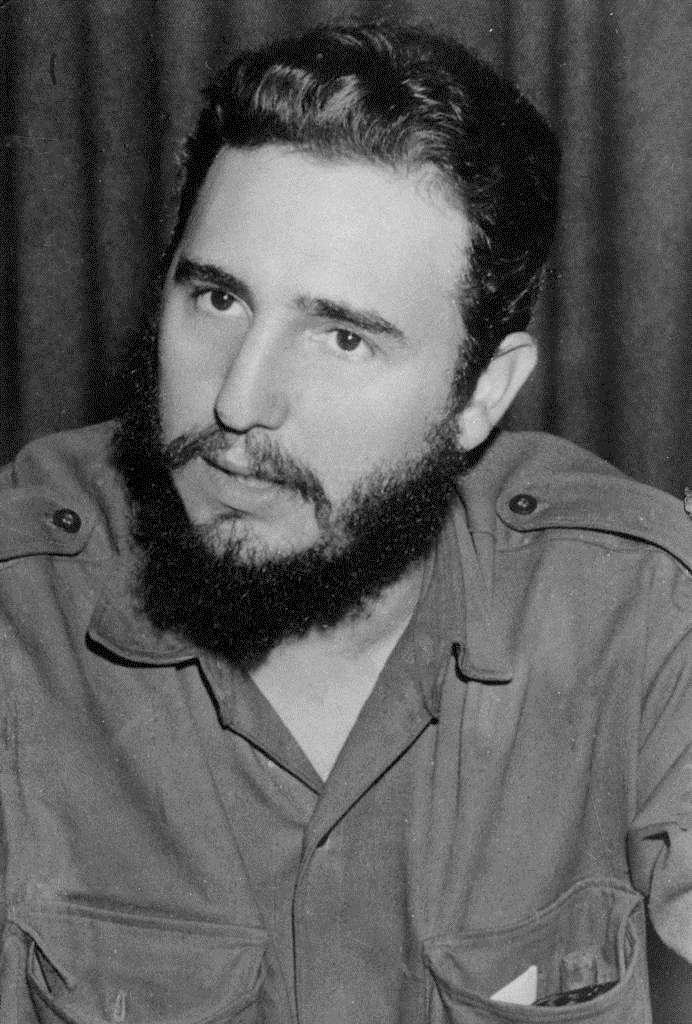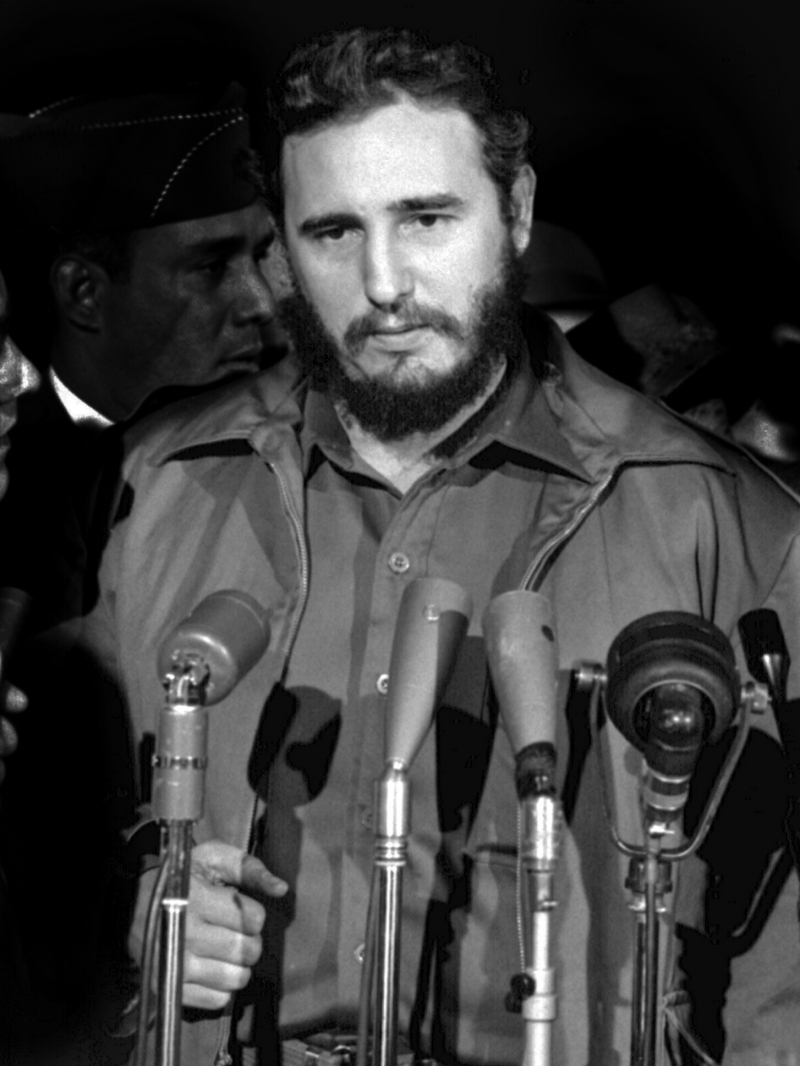Fidel Alejandro Castro Ruz
One of the most important historical figures in Cuba is Fidel Alejandro Castro Ruz. He (13 August 1926 – 25 November 2016) was a Cuban revolutionary and politician who served as the country's prime minister from 1959 to 1976 and president from 1976 to 2008. He was a Marxist-Leninist and a Cuban nationalist, and he was also the first secretary of the Communist Party of Cuba from 1961 to 2011. Cuba became a one-party communist state during his presidency; industry and business were nationalized, and state socialist reforms were adopted across society.
Castro, the son of a wealthy Spanish farmer from Birán, Oriente, developed Marxist and anti-imperialist ideals while studying law at the University of Havana. He plotted the overthrow of Cuban President Fulgencio Batista in 1953, after taking part in rebellions against right-wing governments in the Dominican Republic and Colombia. After a year in prison, Castro moved to Mexico and founded the 26th of July Movement with his brother Raul Castro and Ernesto "Che" Guevara. When Castro returned to Cuba, he played an important part in the Cuban Revolution, leading the Movement in a guerilla struggle against Batista's forces from the Sierra Maestra. Following the revolution of Batista in 1959, Castro gained military and political control as Cuba's prime minister. Adopting a Marxist-Leninist development model, Castro transformed Cuba into the Western Hemisphere's first one-party, socialist state ruled by the Communist Party. Policies instituting central economic planning and expanding healthcare and education were followed by official control of the press and internal opposition suppression. Castro backed the construction of Marxist governments in Chile, Nicaragua, and Grenada, as well as sending soldiers to aid friends in the Yom Kippur War, the Ogaden War, and the Angolan Civil War. These actions, together with Castro's leadership of the Non-Aligned Movement from 1979 to 1983 and Cuba's medical internationalism, raised Cuba's international profile. Following the dissolution of the Soviet Union in 1991, Castro guided Cuba through the "Special Period" economic crisis, embracing ecological and anti-globalization beliefs.
Castro, the longest-serving non-royal head of state in the twentieth and twenty-first centuries, polarized views around the world. His admirers regard him as a socialist and anti-imperialist whose revolutionary administration improved economic and social justice while ensuring Cuba's independence from US influence. Critics label him a dictator whose administration presided over human rights abuses, the exodus of many Cubans, and the country's economic decline.







